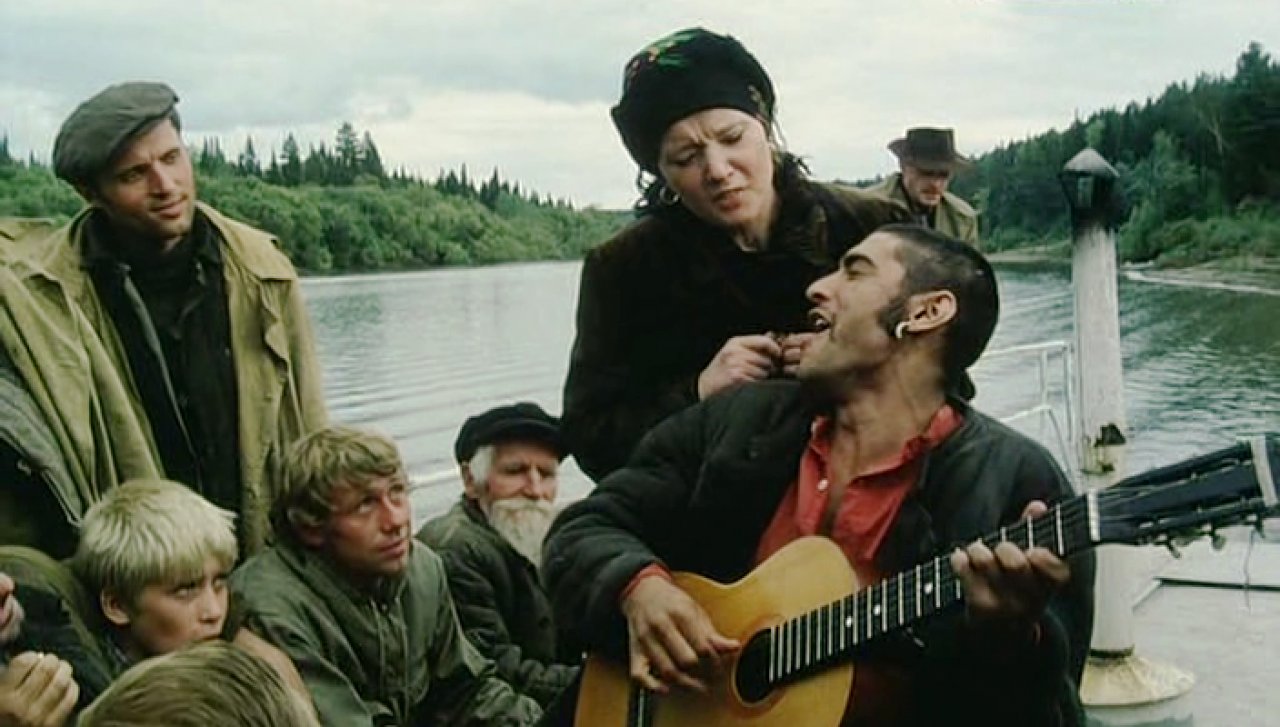I've been wanting to make a list like this for a long while, but I wanted to have a strong enough base of films watched. So I've seen all the real famous stuff, as well as enough of the obscure stuff to (somewhat) know what I'm talking about. That being said, this is more of a personal recommendations list, not the be-all-end-all of ruskie cinema, because it won't include films that may be good but aren't for me (like Irony of Fate). It's not my place to talk about these.
The list also won't be in any order. I recommend them all equally, unless noted otherwise. I saw no point in ranking them numerically. They will also be listed in separate posts, for the sake of legibility.
A time-travelling accident leads to an idiot trading places with Ivan the Terrible
A comedy by Leonid Gaidai, one of Russia's most popular directors. His run from the 60's and 70's are considered classics nowadays, and his distinct style and timing has influenced a lot of modern ruskie visual humour (Little Big, Red Medusa cartoons...). While you can't go wrong with any of them, Ivan Vasiliyevich Changes Professions is my pick of the bunch. It's the ''just right'' one. Like Blizzard has Brood War and Pink Floyd has The Wall, Gaidai has this.
I've heard people compare it to Mel Brooks, which isn't too off since their timing is similar, but Gaidai is distinct in the fact that his comedies don't really have a ''target''. They're light-hearted. Not trying to be emotional or satirize anything. Just lolz for the sake of lolz, carried by a smoothly unfolding story, always with perfect delivery. The setups are nicely weaved into the story, you don't see the punchlines coming, the jokes are nicely varied, with physical humour, verbal humour, fish-out-of-water jokes, fourth-wall breaks, absurdism, ''it's funny because it's true'' jokes, etc., basically whatever type of joke the situation calls for. It's all the basics of comedy done perfectly.
My second favourite of his would be ''Operation Y and Shurik's other adventures'', a collection of 3 half-hour short films.
The list also won't be in any order. I recommend them all equally, unless noted otherwise. I saw no point in ranking them numerically. They will also be listed in separate posts, for the sake of legibility.
Ivan Vasiliyevich Changes Professions


A time-travelling accident leads to an idiot trading places with Ivan the Terrible
A comedy by Leonid Gaidai, one of Russia's most popular directors. His run from the 60's and 70's are considered classics nowadays, and his distinct style and timing has influenced a lot of modern ruskie visual humour (Little Big, Red Medusa cartoons...). While you can't go wrong with any of them, Ivan Vasiliyevich Changes Professions is my pick of the bunch. It's the ''just right'' one. Like Blizzard has Brood War and Pink Floyd has The Wall, Gaidai has this.
I've heard people compare it to Mel Brooks, which isn't too off since their timing is similar, but Gaidai is distinct in the fact that his comedies don't really have a ''target''. They're light-hearted. Not trying to be emotional or satirize anything. Just lolz for the sake of lolz, carried by a smoothly unfolding story, always with perfect delivery. The setups are nicely weaved into the story, you don't see the punchlines coming, the jokes are nicely varied, with physical humour, verbal humour, fish-out-of-water jokes, fourth-wall breaks, absurdism, ''it's funny because it's true'' jokes, etc., basically whatever type of joke the situation calls for. It's all the basics of comedy done perfectly.
My second favourite of his would be ''Operation Y and Shurik's other adventures'', a collection of 3 half-hour short films.
__________________
I'm the Yugoslav cinema guy. I dig through garbage. I look for gems.
I'm the Yugoslav cinema guy. I dig through garbage. I look for gems.






.jpg)

 Check out my podcast:
Check out my podcast: 

